Magic Leap augmented reality headset goes on sale
- Published
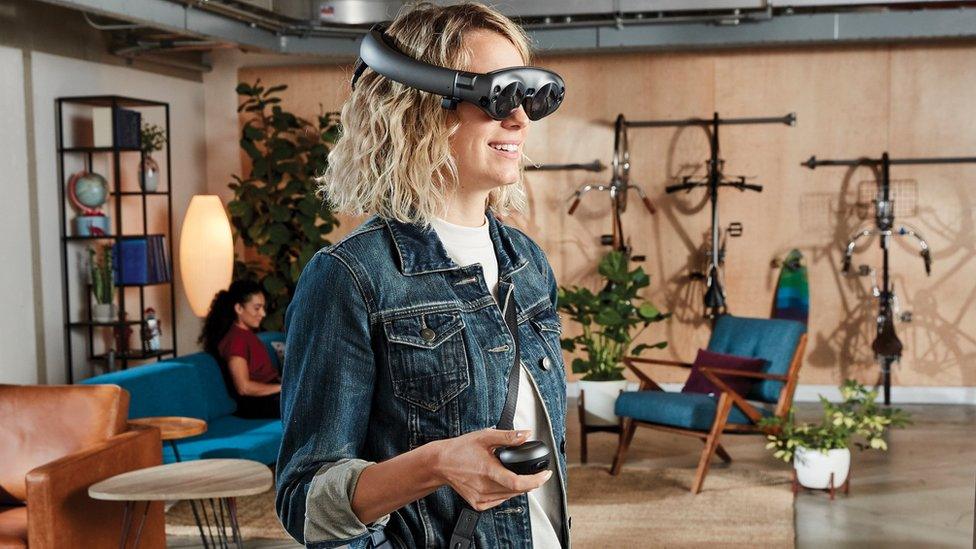
Magic Leap claims its kit makes the unreal feel real
Magic Leap's much-anticipated augmented reality glasses have gone on sale more than three years after the Florida firm released its first teaser video.
The start-up is backed by big names - including Google, Alibaba, AT&T and the Saudi state - which collectively have invested $2.3bn (£1.8bn) in it.
Leap One's Lightwear headset mixes together graphics and real-world views, external, and requires a wired link to a small computer, which clips on to a pocket.
A handheld control completes the kit.
The set-up - which is being targeted at software developers and artists - costs $2,295 (£1,780).
That makes it considerably cheaper than the development edition of Microsoft's rival Hololens gear, which is priced at £2,719.
The Leap One fills up slightly more of the user's field of view, although the edges of its coverage are still obvious and can detract from the illusions it creates.
And it promises "up to three hours of battery life", which is similar to its competitor.
Despite its funding, several tech commentators had cast doubt over whether Magic Leap would ever launch a product that lived up to the hype of its promotional material.
Although it has managed to bring a product to market, early impressions suggest a lot more refinement is needed.
"Edges glowed slightly, text was a little fuzzy, and some objects appeared slightly transparent," wrote Adi Robertson for the Verge news site, external.
"Tracking was generally good, but objects occasionally shifted or jittered. A few times, animated objects seized up altogether."
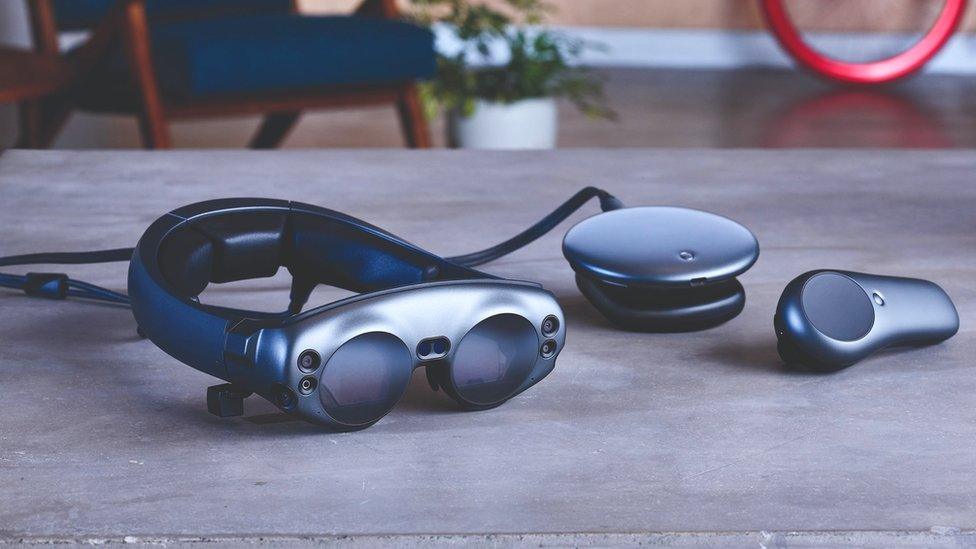
CNBC's Todd Haselton described the headset, external as being bulky but comfortable, adding that it "can be hard to see objects that are really close to you or too big for the headset's field of view".
He concluded that, although it was "impressive", it would be likely to take years to create a model suitable for the general public "where there's no limit on the field of view and where every TV channel and movie and game I want to play is all in that world".
Robot war
The Leap One Creator Edition is powered by its own operating system LuminOS.
It features a "spatial" web browser, and a video player that can place several virtual displays in the area in front of the user.
In addition, one demo app places the owner within an undersea world in which jellyfish and turtles swim past the surrounding furniture.
The glasses' sensors can also detect where real world objects begin and end. This allows another demo to use a nearby table to stage a fight between a dinosaur and a knight, with the loser tumbling over its edge.
A first action video game is promised later this year, in which robots will attempt to invade the user's living room.
For now, the launch is limited to cities in the US, in order to provide a personal fitting and set-up service.

Analysis
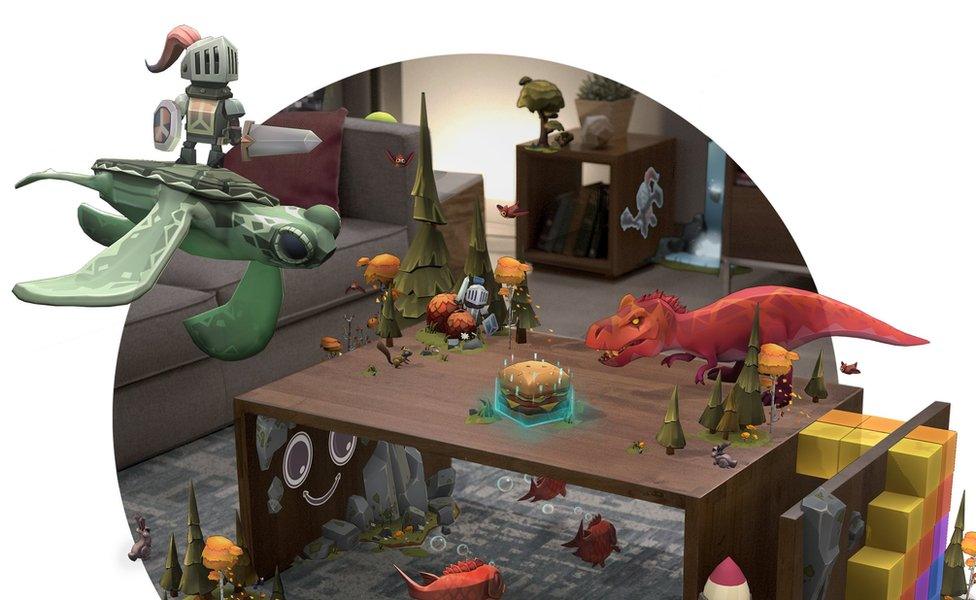
By Rory Cellan-Jones, Technology correspondent
Here is the problem for Magic Leap - the moment for futuristic headsets delivering extraordinary augmented reality experiences to consumers may have already passed.
Google Glass came along in 2013, only to retreat to the lab and a more obscure existence in the enterprise a couple of years later.
Microsoft learned from that and aimed Hololens at businesses from the start. Immersive experiences and games are all very well but persuading consumers it is worth the bother of strapping on an expensive headset may not be easy.
As I found wearing Google Glass for a few months, the early excitement soon gives way to embarrassment as your friends tell you it's not a good look.
More mundane headsets are however gradually invading the workplace. Toshiba's smart glasses have joined Hololens in providing practical solutions such as giving gas engineers hands-free instructions via a video call while they repair a boiler.
Not as glamorous as battling AR zombies as they burst through your kitchen wall, but perhaps a more realistic commercial proposition.
- Published20 December 2017
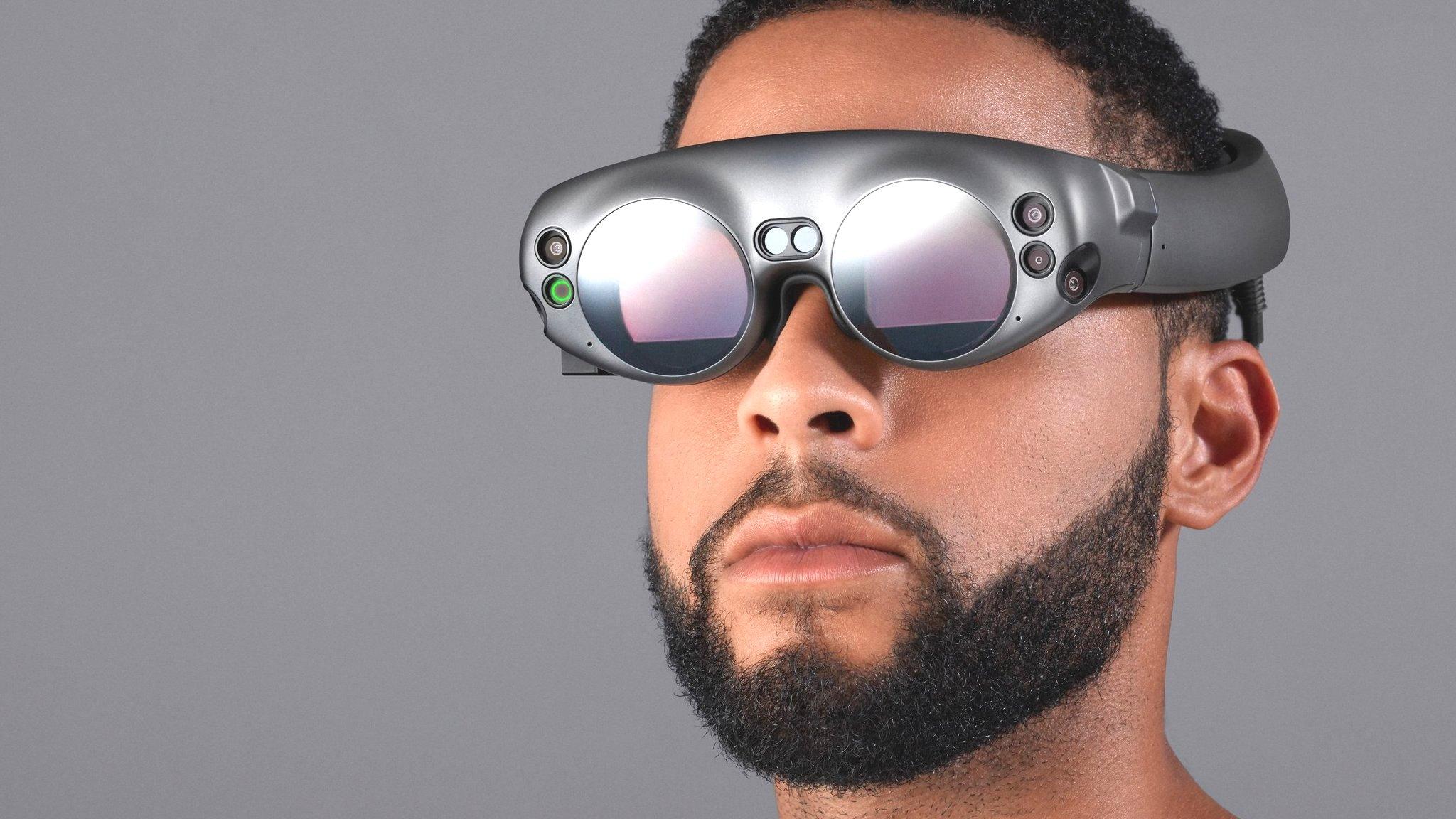
- Published23 October 2017
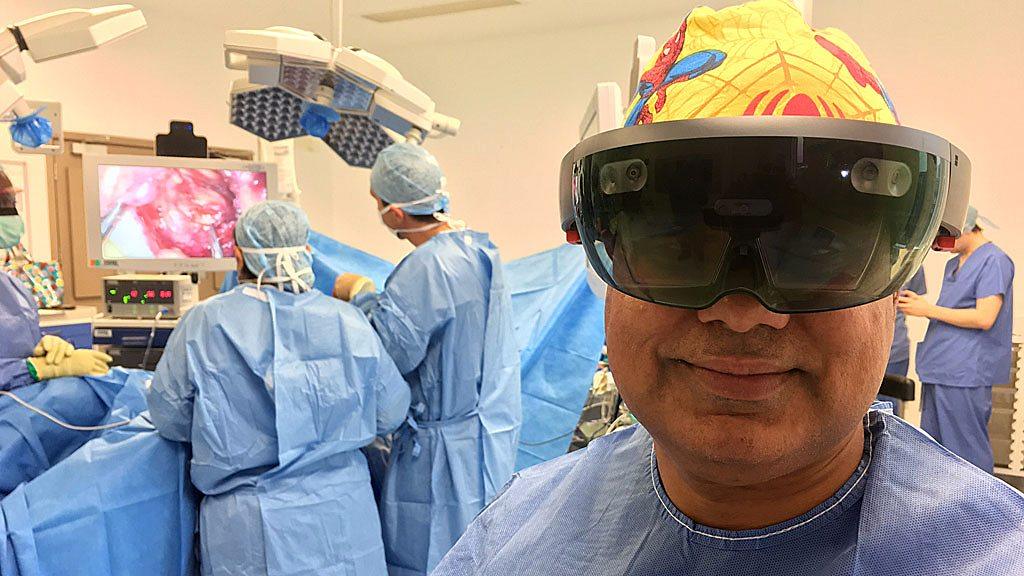
- Published12 October 2016